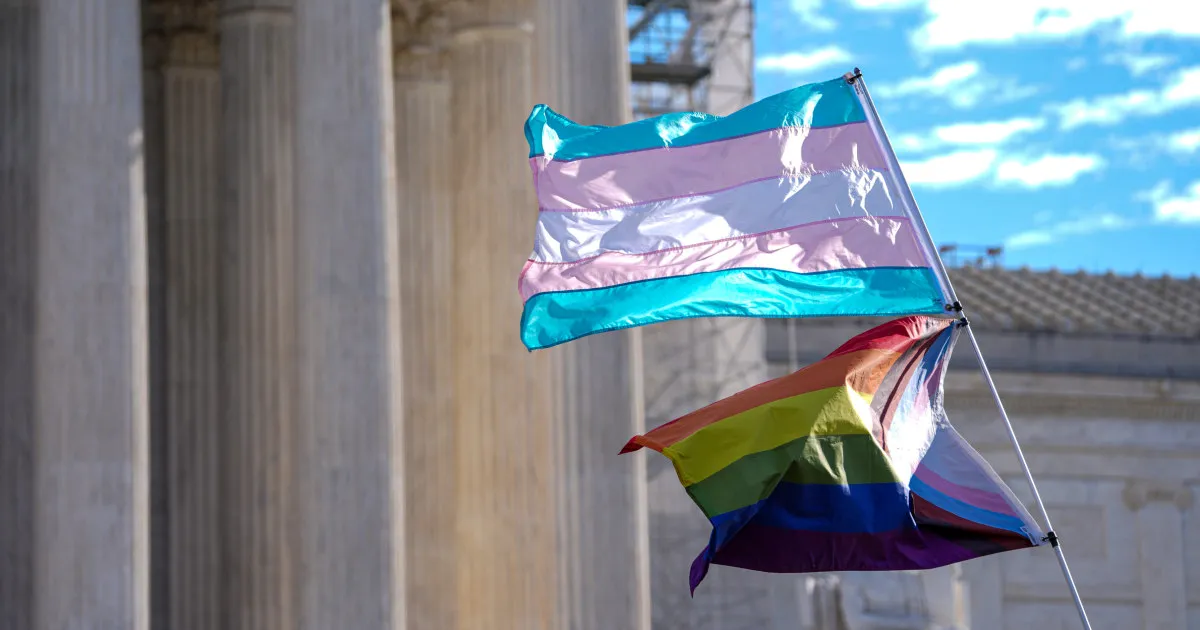
On Thursday, the Supreme Court entered a significant legal battle concerning state laws that prohibit transgender athletes from competing in girls' and women’s sports at the school and collegiate levels. The court has agreed to consider cases from West Virginia and Idaho, focusing on the experiences of two transgender students, Becky Pepper-Jackson and Lindsay Hecox, who are challenging these state bans. Both students have successfully secured injunctions permitting them to compete in sports while the legal challenges unfold.
Becky Pepper-Jackson, now 15 years old, is currently on puberty-blocking medication, while Lindsay Hecox, a 24-year-old college student, has undergone testosterone suppression and estrogen treatments. The Supreme Court’s decision to hear these cases follows a recent ruling that upheld a Tennessee law restricting gender-affirming care for minors, a decision that has raised further questions about the rights of transgender individuals.
Joshua Block, an attorney with the American Civil Liberties Union, who represents both Pepper-Jackson and Hecox, stated, “Categorically excluding kids from school sports just because they are transgender will only make our schools less safe and more hurtful places for all youth.” He emphasized the legal team’s commitment to defending the rights of all children to participate in sports.
In response to the Supreme Court's intervention, West Virginia Attorney General JB McCuskey expressed support, stating, “The people of West Virginia know that it’s unfair to let male athletes compete against women; that’s why we passed this commonsense law preserving women’s sports for women.” Similarly, Idaho Attorney General Raúl Labrador echoed these sentiments, affirming that women and girls deserve an equal playing field in sports.
Oral arguments for these cases are anticipated later this year, with a ruling expected by June 2026. Both West Virginia and Idaho have enacted laws that categorically bar transgender students from participating in girls' or women’s sports. As of now, more than half of the 50 states in the U.S. have implemented such laws, though the legal challenges surrounding them remain unresolved.
The ongoing debate regarding the expansion and restriction of transgender rights has become a contentious issue across the nation. This topic was notably featured in the recent presidential election, with former President Donald Trump criticizing Democrats for their support of transgender rights initiatives. The Trump administration also began to reverse measures previously enacted by President Joe Biden aimed at extending protections for transgender individuals.
In February, the National Collegiate Athletic Association (NCAA) announced a shift in policy, designating women’s sports to be limited to “student-athletes assigned female at birth only.” This policy change reflects the growing tensions surrounding the inclusion of transgender athletes in competitive sports.
In Pepper-Jackson’s case, a federal judge initially ruled in her favor but later determined in January 2023 that the law was likely legal, permitting its enforcement. However, Pepper-Jackson appealed, leading the 4th U.S. Circuit Court of Appeals to block West Virginia officials from enforcing the law against her. The Supreme Court also denied the state's bid to enforce the law, allowing her to continue competing in school sports, including cross-country and track.
Similarly, Hecox secured an injunction against Idaho officials from enforcing their law, winning an appeal in the 9th U.S. Circuit Court of Appeals. Both Pepper-Jackson and Hecox faced challenges in qualifying for running teams at their schools, with Pepper-Jackson achieving third place in the middle school discus and sixth in shot put, while Hecox also competes in soccer.
The laws enacted in West Virginia and Idaho raise significant legal questions concerning their compliance with the 14th Amendment of the U.S. Constitution, which mandates equal protection under the law. In addition, Pepper-Jackson’s case invokes Title IX of the Education Amendments of 1972, which prohibits sex discrimination in education. The Biden administration has proposed guidelines indicating that blanket bans on transgender athletes would be unlawful, although it may be permissible to impose certain limitations on competitive sports participation.
In contrast, the Trump administration set forth an executive order titled “Keeping Men out of Women’s Sports,” reiterating its stance against transgender participation in women’s sports. The Supreme Court's 2020 decision affirming that federal law prohibiting sex discrimination in employment protects LGBTQ individuals has caused significant backlash among conservative groups, yet the implications for Title IX remain to be seen as the court prepares to rule on these critical issues.